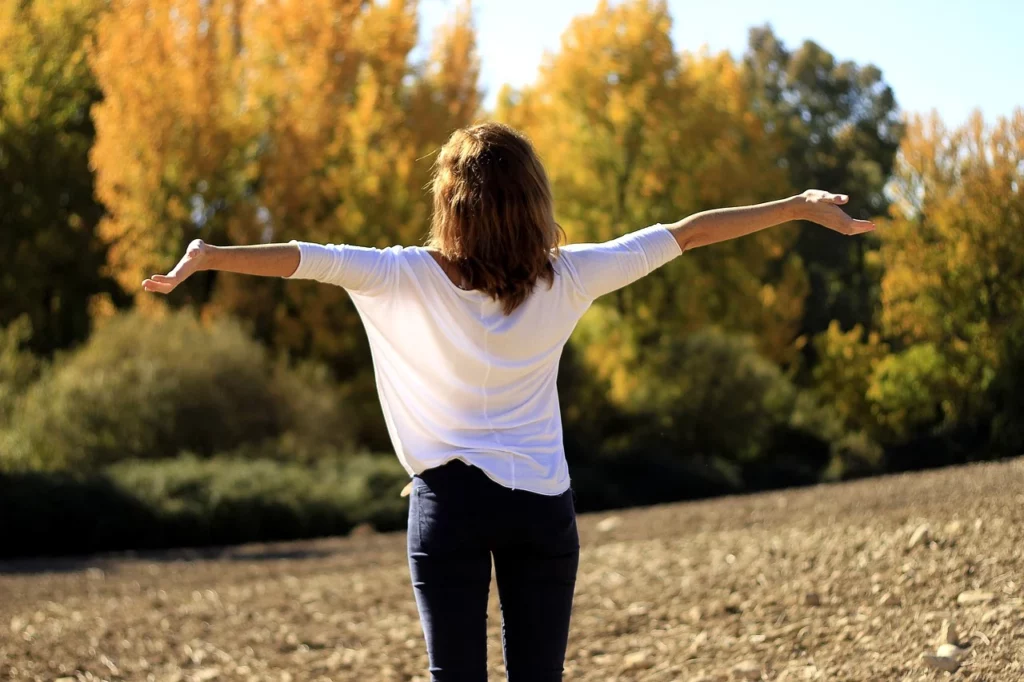Located in the Illawarra region, Wollongong is a major health hub and has many rehabilitation services on offer. If you’re searching for a rehab in Wollongong, there are various options available. This article will cover the many aspects of rehabilitation, including neuroplasticity in recovery, trauma and psychological interventions like CBT, physical rehabilitation to improve function and strength. Cognitive rehabilitation techniques are aimed at improving memory and attention. Highlands Recovery is close to Wollongong so for those looking for comprehensive care it’s an option. Understanding these things is key to recovering from substance use disorder and mental health issues.
Understanding Rehab in Wollongong: An Overview
Wollongong is in the heart of the Illawarra and is a major provider of health services with a wide range of rehabilitation options. The city’s location and diversity of health services makes it a great place to access rehabilitation. Rehab in Wollongong covers all aspects of care from physical rehabilitation to cognitive and psychological support for people with various health conditions including addiction and mental health.

The Illawarra has facilities that provide inpatient and community based rehabilitation. For example the Division of Rehabilitation, Aged and Extended Care operates across multiple hospitals and community settings and provides multidisciplinary care to improve patients quality of life by improving their function and managing their disease. Community support also plays a big role in recovery providing a supportive environment which is essential for overcoming addiction and other health challenges.
For those looking for rehab in Wollongong being close to the Highlands is also a big plus. Being close to the Highlands means you can access all the rehabilitation services while still being close to the amenities and support networks in Wollongong.
The Role of Neuroplasticity in Rehabilitation
Neuroplasticity is a key concept in rehabilitation, it’s the brain’s ability to reorganise itself by forming new connections throughout life. This is essential for recovery as it allows us to compensate for damaged areas of the brain and learn new skills. Neuroplasticity plays a big role in cognitive rehabilitation, helping us regain functions like memory, attention and problem solving skills.
Neuroplasticity involves synaptic plasticity where the strength of connections between neurons change based on experience and neurogenesis, the growth of new neurons in certain parts of the brain. Understanding how neuroplasticity works in the brain is important for developing effective rehabilitation strategies. For example cognitive training programs can stimulate neuroplasticity by challenging the brain with new tasks and environments and therefore enhance cognitive recovery.
In the context of addiction recovery neuroplasticity helps us rewire our brain’s reward system, reduce cravings and improve impulse control. This is done by repeated exposure to new experiences and environments that promote healthy behaviors, gradually changing the brain’s response to triggers associated with substance use.
Rehabilitation and Trauma: Addressing Complex Needs
Rehabilitation programs often overlap with trauma, as many people in rehab have had traumatic experiences. Trauma can present as post-traumatic stress disorder (PTSD), complex trauma or other psychological conditions that make recovery harder. Trauma needs to be addressed in rehabilitation and requires a whole of person approach that considers psychological and physical needs. If you’re looking for a rehab in Wollongong, it’s important to find one that incorporates trauma-informed care.

Trauma informed care is essential in rehabilitation, it acknowledges trauma and its impact on a person’s life. This means creating a safe space where people feel supported and empowered to face their experiences without feeling traumatised. Cognitive-behavioural therapy (CBT) and other evidence-based therapies are used to help people process their trauma and develop coping strategies.
In Wollongong community mental health services like the Illawarra Community Mental Health Rehabilitation Service support people with mental health issues including those related to trauma. These services help people manage their symptoms and improve their quality of life by connecting them with the right support networks and resources.
Rehabilitation programs for trauma need to be individualised to the person’s needs, taking into account their unique experiences and circumstances. By trauma-informed care in rehabilitation people can better navigate their recovery journey, address the physical and psychological aspects of their condition.
The Importance of Physical Rehabilitation in Recovery
Physical rehabilitation is part of the recovery process to regain and improve function, strength and overall physical well being. Whether recovering from an injury, surgery or a physically debilitating condition, physical rehabilitation aims to get back lost function and be able to do daily activities independently. If you’re looking for a rehab in Wollongong, there are various options available to support your recovery. Physical therapy is often recommended before and after surgeries like spinal or joint replacements to promote healing, reduce inflammation and prevent complications like scarring and infection.

Rehabilitation accelerates recovery, helps individuals gain strength, flexibility and independence faster than just resting. For athletes or individuals with physically demanding jobs, rehabilitation gets you back to daily activities or work faster and minimizes the risk of re-injury. Physical therapists design individualised rehabilitation programs, exercises and treatments to increase function and strength. These programs reduce or eliminate pain and may avoid the need for surgery.
Beyond restoration of function, physical rehabilitation plays a big role in injury prevention. By teaching patients how to move more efficiently and effectively, physical therapists can reduce the risk of future injury and improve overall performance4. This may include recommending specific stretches, exercises, proper footwear or protective gear4. The benefits of physical therapy goes beyond physical improvements, including improved function, increased range of motion, better posture and less discomfort.
Cognitive Rehabilitation: Enhancing Mental Function
Cognitive rehabilitation is a technique to improve memory, attention and problem solving skills. It’s a big part of rehabilitation especially for people who have had a traumatic brain injury, stroke or neurodegenerative conditions. If you’re looking for a rehab in Wollongong, you’ll find facilities that incorporate cognitive rehabilitation as part of their recovery programs. The goal is to enhance mental function and overall well being.
Cognitive rehabilitation programs include targeted exercises and activities that challenge specific cognitive skills. For example memory training might involve techniques to improve recall and recognition, attention training could involve exercises to improve concentration and reduce distractibility. Problem solving skills are addressed through structured tasks that require critical thinking and decision making.
Neuroplasticity, the brain’s ability to reorganise itself by forming new connections, is the key to cognitive rehabilitation. By stimulating specific brain areas and creating new pathways, cognitive rehabilitation can help people compensate for cognitive deficits and regain lost skills. This takes consistent effort and a tailored approach as everyone’s cognitive profile and needs are unique.
Rehabilitation Environments: Designing for Recovery

The environment in which you rehabilitate has a big impact on the recovery process. Rehabilitation environments should be designed to support recovery by having outdoor spaces and social areas that promote well-being. When choosing a rehab in Wollongong, finding a facility that provides a supportive and well-designed setting is essential. Things like lighting, noise levels and spatial layout can affect mood, motivation and overall rehabilitation outcomes.
Having outdoor spaces means you can connect with nature which has been shown to reduce stress and improve mental wellbeing. Social areas mean you can interact and support each other while undergoing rehabilitation, and feel part of a community and not isolated. Well designed rehabilitation environments also put safety and accessibility first so you can move around the space comfortably and independently.
As well as the physical environment, the social and emotional climate of a rehabilitation setting is key. A supportive and empathetic atmosphere will boost motivation and adherence to treatment plans. Rehabilitation programmes that include holistic approaches that address physical and psychological needs do better. We don’t offer this but other rehabilitation centres may have access to holistic therapies like yoga or meditation.
Addiction and Recovery in Wollongong: Community Support
Wollongong has a great network of community support systems for people with addiction which is key to recovery. Community support is huge in providing a supportive environment to navigate addiction recovery. Services like IDAS provide comprehensive support including counselling and group programs for alcohol and other drug use. Headspace Wollongong also offers mental health support for young people which can be helpful for people with substance use issues and mental health challenges.
Community support is important because it gives people a sense of belonging and connection which is crucial for motivation and resilience during recovery. Support groups and family services like the Illawarra Shoalhaven Local Health District support carers and family members to cope with loving someone with addiction. These services create a supportive environment where people can open up and be understood and stay on the road to recovery.
Proximity to Highlands Recovery: Accessibility and Convenience
If you’re looking for rehab in Wollongong, the proximity to Highlands Recovery is a big plus. Being close to Highlands Recovery means you can access rehabilitation services while still being close to the amenities and support networks in Wollongong. This is especially useful for those who need ongoing support from family and friends during their recovery.
Highlands Recovery offers world class, private and confidential care so clients receive the highest level of care tailored to their individual needs. Admission to our programs is subject to clinical assessment so each individual receives the right care for their condition. Not all conditions can be treated and a full assessment is required to determine suitability for the program.
The Science Behind Rehabilitation Outcomes: Measuring Success

Assessing rehabilitation outcomes is a bit of a tricky process that looks at many different aspects of a person’s recovery. Scientific measures used to assess these outcomes are standardised tests of cognitive function, emotional wellbeing and physical health. These tests tell us where we need to improve and measure the effectiveness of the interventions over time.
In rehabilitation terms, success is often measured by improvement in function, reduction in symptoms and improved quality of life. For example, cognitive rehabilitation outcomes might be measured by neuropsychological tests to see improvement in memory, attention and problem solving. Physical rehabilitation outcomes might be measured by assessments of motor function and strength.
Understanding the science of rehabilitation outcomes is key to developing a treatment plan. By using evidence based practices and regularly assessing progress, rehabilitation programs can tailor interventions to each individual and get better results. This means that rehab in Wollongong, NSW are always improving to provide the best care for individuals seeking recovery.
Conclusion
Rehab in Wollongong, NSW is a holistic approach to recovery that combines physical, cognitive and psychological support. Community support systems play a big part in creating a supportive environment for people with addiction. Highlands Recovery near Wollongong offers a world class, private and confidential rehabilitation service that focuses on whole person care and tailored treatment plans. Their residential program provides intensive support so that individuals can manage their triggers and achieve long term recovery. By combining structured therapy with ongoing aftercare, Highlands Recovery helps individuals navigate the recovery journey with resilience and hope.
References
Cleveland Clinic. (n.d.). Physical therapy: Overview and benefits. Retrieved from https://my.clevelandclinic.org/health/treatments/physical-therapy
H2 Health. (n.d.). Why is physical rehabilitation important? Retrieved from https://www.h2health.com/why-is-physical-rehabilitation-important/
World Health Organization. (n.d.). Rehabilitation: Key facts and global impact. Retrieved from https://www.who.int/news-room/fact-sheets/detail/rehabilitation
Illawarra Shoalhaven Local Health District. (n.d.). Drug and alcohol service. Retrieved from https://www.islhd.health.nsw.gov.au/services-clinics/drug-alcohol-service
Headspace. (n.d.). Wollongong Headspace Centre: Youth mental health support. Retrieved from https://headspace.org.au/headspace-centres/wollongong/






















































